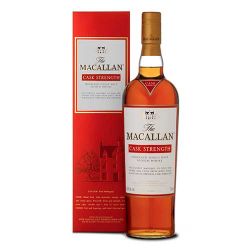The math of this is quite simple – there are 7 calories per gram of alcohol. To find out how many calories are in a shot of whisky, we simply need to convert that into grams, then calculate the grams of alcohol based on it’s proof, and multiply by seven. Simple right? A shot of anything is generally 1.50 fluid ounces, which is 41.7 grams.
Whisky can range in proof, starting at 80 proof, but we’ll stick with some simple math. Let’s go with 80 proof, or 40% alcohol, which gives us 16.68 grams of alcohol. If each gram has 7 calories, we know now that a shot of whisky has about 116.76 calories.
If you have a 43% ABV whisky, that’s 125.517 calories.
And if you drink a cask strength whisky at 60% ABV, then you’re talking a whopping 175.14 calories.

